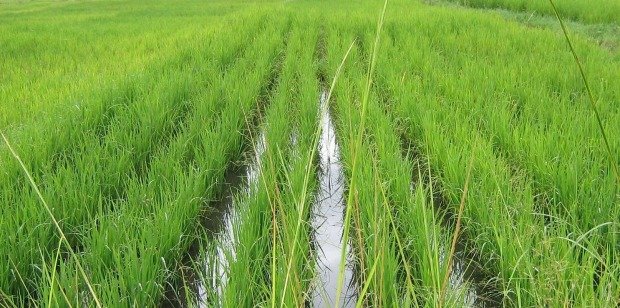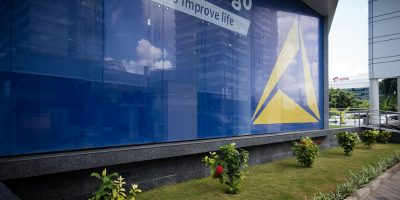Zanzibar needs at least 80,000 tonnes of rice, annually to meet the needs of its growing population, but the struggle to increase production has so far resulted in
That means the country has to continue relying heavily on imports to feed its more 1.3 million people (2012 census) as its efforts to increase or produce enough continues with support from foreign countries particularly South Korea, Indonesia, and China.
The Government has been making intensive efforts to improve the agriculture sector, particularly since 2011 when Ali Mohamed Shein, shortly after taking over as President, introduced ‘ agriculture revolution or transformation program’ with aim to double or triple rice production to reduce depending on imported rice.
Despite existing and emerging challenges in farming which include insufficient or lack of modern skills and technology and impacts of climate change, the government has maintained its efforts for the last eight years, supporting rice farmers by offering agricultural subsidies to rice farmers by covering 75
In addition, a total of 600 farmers received training on good farming practices through Expanding Rice Production Project (ERPP), according to the information from the ministry of agriculture, Natural resources, livestock, and fisheries.
These cumulative efforts have substantially increased the rice yields; from 39,000 tons in 2017 to 48,118 last year, equivalent to an increase of 23 percent. Likewise, last year also saw a noticeable increase in the availability of various fruits and vegetables, particularly tomatoes.
Dr. Shein commended the farmers for the development in improving farming, and the farming ministry for workable plans which include modernizing rice farming by applying new irrigation technologies.
When speaking the people through live broadcast channels, explaining successes in the period of 55 years after the revolution which toppled colonial regime Shein said we should be proud of the achievements so far and work hard for a better future.
On 13th December 2018, the Ministry of Agriculture, Natural Resources, Livestock and Fisheries, on behalf of the Government, signed an agreement with a contractor from the Republic of Korea for the construction of irrigation infrastructure that will cover a total of 1,524 hectares.
The irrigation infrastructure covers rice farms in Cheju, Bumbwisudi and Kibokwa villages in Unguja Island while in Pemba the farms are in Makwararani and Chamanangwe villages, “We hope that through this project, rice yields in Zanzibar will substantially increase,” Shein said.
He also said that in a similar move, his Government in collaboration with other Development partners designed a special 10 year agricultural programme under the name of The Zanzibar Agricultural Sector Development Programme (
The Minister for Agriculture, Natural resources, Livestock, and Fisheries Mr. Rashid Ali Juma says despite whether challenges which include variability in rainfall, studies have indicated that can still increase rice and other farm products through irrigation, Mr Juma said “Water resources available for irrigation will enable us produce to meet our demand and reduce imports from abroad.
Let us utilize the opportunity
Mr. Juma said that many people here consume rice, but only less than 25 percent is produced out of the annual consumption of 80,000 tons and that the country has about 8,521 hectares of land suitable for rice irrigation farming, targeting to produce at least 50 percent of the required rice by 2020.
The Minister said that most farmers should observe farming guidelines and advice from the FEO in applying better farming methods, as the government promises to continue distributing farm inputs.
Mr. Kassim Mohammed, a rice farmer in Kilombero thanked the government for the ongoing initiatives and supporting them to produce enough rice, delays to get seeds and other inputs are challenges that need to be addressed.
He said that the implementation of the ‘ Agriculture Transformation Initiatives (ATI)’ introduced by President Shein in a bid to become selfsufficient in rice production is good, but challenges such as delays for tractors to provide services like ploughing and harrowing of land, affects smooth farming.
“We need land preparation, herbicide (weeds killer), and fertilizers on time for good results. Any delay affects farming timetable, especially we still rely on rainfall,” Mohamed said.
Farmers get the inputs at subsidized of herbicideHansunil from China at 6,000/= instead of 26,000/= per liter and fertilizers at 10,000/= for the 50-kilogram bag instead of 60,000/=.
Zanzibar farmers grow different kinds of rice which include New Rice for Africa (NERICA) an interspecific cultivar of rice developed by the Africa Rice Center (AfricaRice) to improve the yield of African rice varieties.
It is said that NERICA rice (takes 80-90 days) is a cross between varieties of high-yielding Asian rice and the robust and disease-resistant African rice, developed at WARDA -the West African Rice Development Agency- a rice research
Other kinds of type of grown rice here include ‘ Super- India which takes four months; ’ BKN-Supa (90 days); ‘ TX D 306’ and ‘ TxD 88,’ both take 120 days.
According to the Africa Agriculture Status Report (AASR) 2018, countries in the continent are required to do more to improve agriculture, and that the African Union (AU) sponsors a large, highly professional, continuing development of an Africa-wide blueprint for accelerated agricultural growth— the Comprehensive African Agricultural Development Programme (CAADP).
It says that the Heads of State of all African countries have signed off on it and it has formed the basis for agricultural growth strategies in those countries.
CAADP quantified national targets of six percent agricultural growth rate; 10 percent of national budgets to agriculture; and one percent of agricultural GDP to agricultural research, yet few African countries have come even close to meeting these targets.
The reports said “They are expected to be the national targets as more and more African countries commit to accelerated agricultural growth,” as it mentions Ethiopia, as a major success in agricultural growth with 25 years of exceeding the CAADP target of a six percent growth rate, with consequent halving of rural poverty, carefully patterned its strategy and plan on the CAADP model.
Ghana and Rwanda are other countries on track with improving productivity. AASR says Political will (that the politicians want to) is the prerequisite to implementation to achieve national objectives.
Description of a “lack of political will” has been prominent in the analyses of poor agricultural performance in African countries

















Comments